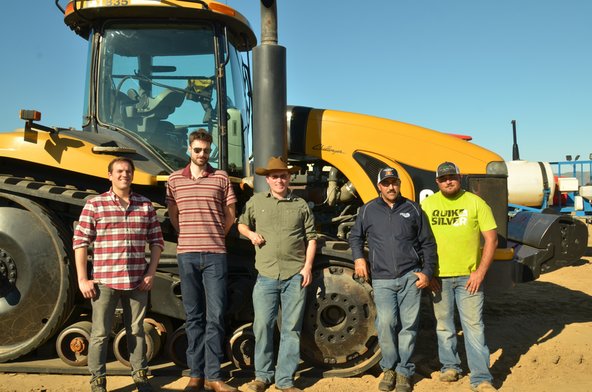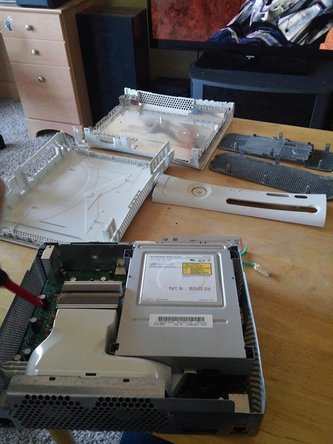This morning, the Copyright Office decided which of your own devices are legal to investigate, modify, and hack—bringing a close to our year-long saga of legal gunslinging, negotiating, fact finding, hearings, and deliberating over US copyright law.
We scored a number of significant victories. Along with a coalition of activists, recyclers, and legal clinics, we were able to overcome the objections of manufacturers and secure exemptions for repairing tractors, cars, and tablets. Unfortunately, the Office rejected our request to legalize certain game console repairs and added a number of restrictions.
Still, this is a huge achievement. We have demonstrated the legal challenges facing repair, and the Copyright Office agrees that the right of owners to modify their equipment supersedes attempts by manufacturers to limit our freedom to tinker. This is an important precedent.
Some background: Every three years, the Copyright Office issues exemptions to Section 1201 of the Digital Millennium Copyright Act. The embattled 1998 law makes it illegal for researchers, owners, and consumers to break technological locks over copyrighted content—from movies to computer software. In recent years, Section 1201 has come under intense fire—first when the Copyright Office effectively made cell phone unlocking illegal in 2013, and then recently when it was discovered that Volkswagen had been programming its cars to cheat emissions tests. Critically, that code could not be examined by independent researchers under the terms of Section 1201.
We’ve spent the last year coordinating nearly a dozen repair-related exemption requests, working with lawyers from Stanford, USC, Public Knowledge, and the Electronic Frontier Foundation. Each of these groups filed detailed legal filings arguing for your right to repair and tinker. I wrote a series of editorials asking for the community’s help. Boy, did you guys respond. Collectively, we sent in more than 40,000 comments to the Copyright Office in support of reform.
The heavy, coordinated criticism from both the public and repair/digital rights organizations seems to have made a mark. This year, the Copyright Office granted and extended several key exemptions, and we couldn’t have done it without your support.
So what’s the bottom line? They granted exemptions that would allow educational organizations and documentary filmmakers the ability to use short video clips. They also extended the exemption allowing blind and visually-impaired readers the ability to enable assistive technologies—such as text-to-speech functionality—in ebooks.
On the tinkering front, it’s now legal to unlock phones, tablets, mobile connectivity devices (like hotspots), and wearables (such as the LG G Watch). There are some caveats, though. The device must be ‘used’, meaning it’s been activated by the original carrier. Owners can also jailbreak their cell phones, “portable all-purpose mobile computing devices” (aka tablets), and their Smart TVs under specific circumstances.
Once the ruling goes into effect, it will also be legal for gamers to access and revive abandoned games for personal gameplay, and for a user to extract the data that their own medical device collects on their health.
The most interesting decision—and perhaps the most fiercely debated—pertained to vehicles. Currently, technological locks make it both difficult and illegal to gain access to a vehicle’s software. Back in May, I testified in front of the Copyright Office, explaining that the current law was the digital equivalent to welding down the hoods of vehicles. The restrictions make it difficult for farmers to repair their tractors, for independent mechanics to repair cars in their shops, and for car hobbyists to carry on the tradition of tinkering in their own driveways.

The Copyright Office agreed! They granted exemptions to users to make repairs, diagnosis, and lawful modifications to the software in their vehicles. Soon owners will be able to tweak the software in their cars. Of course, you can’t do this in ways that would throw your car or tractor out of compliance with emissions regulations and other existing laws. (Those kinds of unlawful modifications will be left up the good people at Volkswagen.)
Speaking of Volkswagen: Under the new ruling, researchers will finally be able to investigate the software in vehicles for flaws and security vulnerabilities. Under current copyright law, researchers who investigate engine software without the manufacturer’s permission open themselves up to the possibility of huge fines and jail time. The new ruling will make it easier for researchers to blow the whistle on manufacturers who are programming their vehicles to cheat. The security research exemption also applies to medical devices (like pacemakers).
There are some downsides: users and researchers won’t actually be allowed to tinker with vehicle programming until a year after the ruling goes into effect (in order to give government organizations time to adjust). Unfortunately, that truncates these three-year exemptions to two years.
The Copyright Office also denied a lot of exemptions outright—including one that would have allowed users to jailbreak their game consoles. iFixit argued that jailbreaking game consoles allowed their owners to repurpose them as a cheap, multi-purpose computers. Critically, we also pointed out that some console repairs—specifically, replacing the optical drive—required the repairer to break digital locks. The Copyright Office rejected our request, despite the fact that the National Telecommunications and Information Administration supported an exemption for console repair.

Despite the setback on consoles and even if many of the exemptions are prohibitively narrow, I am pleased that the Copyright Office is taking steps to make hardware easier to repair and software easier to access. Consumers stood up to vested copyright interests and demanded more ownership rights. I argue that consumers won. Still, the lengthy, complicated process by which exemptions are granted represents a huge barrier. It’s a flawed system—and everyone knows it.
The exemptions that were granted were largely the result of pro-bono counsel by university legal clinics around the world in conjunction with iFixit, ISRI, Public Knowledge, the Electronic Frontier Foundation, and others. We’re incredibly grateful for their heroic efforts.
The ruling is complex, so here’s the bottom line. For a period of three years, this will be the law of the land.
- It’s now legal to unlock:
- Phones
- Tablets
- Mobile connectivity devices (such as hotspots)
- Wearables (such as the LG G Watch)
- But:
- The device must be ‘used’, meaning it’s been activated by the original carrier.
- It’s not legal to unlock anything else, like a cellular-connected car.
- It’s now legal to jailbreak:
- Phones
- Tablets aka ‘portable all-purpose mobile computing devices’
- Smart TVs, for the sole purpose of enabling interoperability
- But:
- This does not include dedicated e-readers like the Kindle Paper.
- This does not include game consoles, even for the purposes of repair.
- It’s now legal to modify the software on:
- Cars
- Tractors
- Heavy equipment
- 3D printers (for the purposes of using alternative feedstock)
- But:
- This does not go into effect for 12 months from the date of the rulemaking.
- Does not include modification of the portions of the vehicle that control telematics or entertainment systems.
- Excludes non-land vehicles, like boats and aircraft.
- Excludes repair shops or other “third parties” — the owner has to do the modification. This is a huge limitation.
- It’s now legal to perform security research on:
- Consumer devices
- Motorized land vehicles (no boat tinkering for you!)
- Certain implantable medical devices (like pacemakers, but not general purpose medical devices like vital sign monitors)
There are a number of additional products (like hearing aids and wheelchairs) that we wanted to apply for exemptions to repair, but didn’t because we couldn’t afford the legal fees. The application process is incredibly onerous. In the absence of pro bono representation, it costs tens of thousands of dollars to hire a legal team to apply for each exemption. Which means the process favors Big Copyright interests that have the money (and the lawyers) to spend.
In their exemptions, the Copyright Office said that “the prohibition on circumvention impacts a wide range of consumer activities that have little to do with the consumption of creative content or the core concerns of copyright. Many of the issues that were raised in this proceeding would be more properly debated by Congress.” We agree. Congress must act to repeal Section 1201, so we don’t have to fight this battle all over again in three years.
Still, the world is a little more free today. Thank you all for your help making this happen.



0 Comments